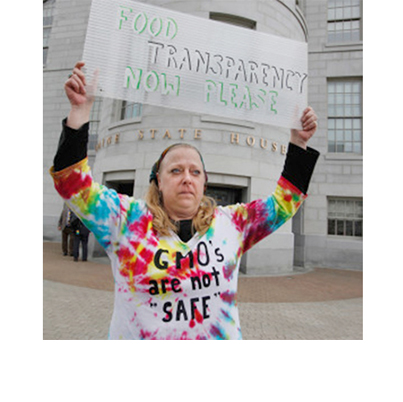A bill now before the Legislature that would require the immediate labeling of foods containing genetically modified organisms drops lawmakers in the middle of a heated debate on some of the day’s most contentious battlegrounds: Scientific integrity, corporate power, consumer rights.
Fortunately, lawmakers do not have to decide once and for all if foods with GMOs are safe. Instead, they must decide only whether the risks of GMOs, and the consumer’s right to know what is in their food, outweigh the potential costs of labeling.
Mounting scientific evidence, and Maine’s place in the marketplace, say they don’t, and that the Legislature got it right a year ago when lawmakers tied labeling here to the passage of similar laws in the five other New England states.
Genetic modification is the process by which the DNA of foods such as corn and soybean are manipulated to help them grow faster, withstand pests or tolerate herbicides, among other traits.
That manipulation has earned these products the nickname “Frankenfood” from opponents. But increasingly, the research is showing that claim to be overblown.
At least 17 international science organizations say GMO foods — all of which are approved by the FDA — are at least as safe as the alternative. In a Pew Research poll conducted earlier this year, 88 percent of scientists said the crops were “generally safe.”
GMO opponents say the FDA does not properly enforce its rules, or that the research is supported by GMO producers themselves. But, again, those claims do not hold up.
“Over the past decade, hundreds of independent researchers have published peer-reviewed safety studies,” reports Popular Science. “At least a dozen medical and scientific groups worldwide, including the World Health Organization and the American Association for the Advancement of Science, have stated that the GMOs currently approved for market are safe.”
Still, the creation of genetically modified seeds helps promote large-scale agriculture and contributes to the loss of biodiversity. For some, that, along with concerns about personal health, is enough to steer them away from GMOs, and warrant the use of labels to make those choices easier.
But by requiring labels now, Maine would force food companies to make costly changes just for the sake of one small state. Undoubtedly, companies would either raise the cost of products here or pull them from the shelves, all for a label of disputable value.
Instead, Maine should stay with its current law, which doesn’t require GMO labels until the rest of New England does, too. Connecticut and Vermont already have passed legislation, and advocates are pushing for laws in New Hampshire and Massachusetts.
In the meantime, consumers concerned about GMOs are not left without recourse — they can purchase the many products labeled either “non-GMO” or organic, neither of which contain GMOs.
Send questions/comments to the editors.



Success. Please wait for the page to reload. If the page does not reload within 5 seconds, please refresh the page.
Enter your email and password to access comments.
Hi, to comment on stories you must . This profile is in addition to your subscription and website login.
Already have a commenting profile? .
Invalid username/password.
Please check your email to confirm and complete your registration.
Only subscribers are eligible to post comments. Please subscribe or login first for digital access. Here’s why.
Use the form below to reset your password. When you've submitted your account email, we will send an email with a reset code.